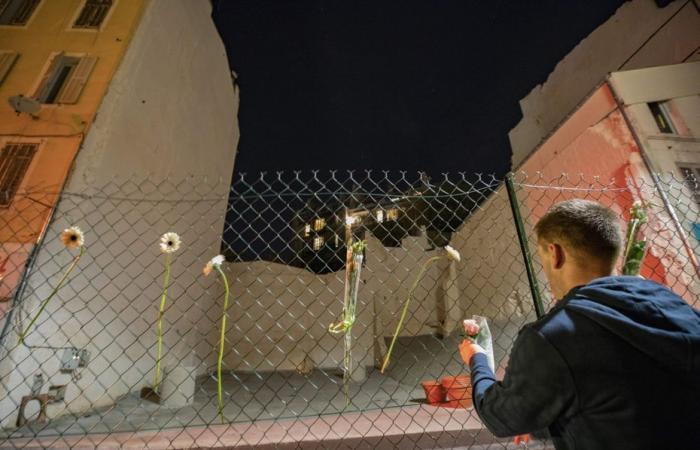Written by AFP et Manon Loubet
share this article:
As the trial on rue d'Aubagne in Marseille opens this Thursday, November 7, 2024, Julien's mother, who died at the age of 30 in these collapses, speaks. Originally from Peru, she now lives in Normandy.
The essentials of the day: our exclusive selection
Every day, our editorial team reserves the best regional news for you. A selection just for you, to stay in touch with your regions.
France Télévisions uses your email address to send you the newsletter “The essentials of the day: our exclusive selection”. You can unsubscribe at any time via the link at the bottom of this newsletter. Our privacy policy
Six years after the drama on rue d'Aubagne, in which her son Julien died, Liliana Lalonde hopes that the trial – which begins Thursday, November 7, 2024 – will make people think “all those who did their job badly” et “filled their pockets”.
Her voice remains even, even soft, when she mentions “those who could do something and didn’t”. Liliana Lalonde lists the long list of failures, from the botched expertise of 65 rue d'Aubagne on October 18, 2018 to the inaction of the trustee in the face of tenants' fears.
As many “things done badly” which led to the disaster of November 5, 2018, when eight people, including his 30-year-old youngest son, were swept away in the fall of a building in downtown Marseille.
Ces “irresponsible people” must understand that “every act has consequences which can be very, very serious”she says. The sudden death of Julien on this rainy Monday morning, “an absolute drama” for his family, must give “something positive”continues in hesitant French this Peruvian woman living today in Normandy.
Julien, a young man unanimously described as “very sociable”, for whom friends were family, still missed by all. Her youngest niece asks again, “why is Julien not here” for his birthday, when he had “promis”.
“For six years, we have tried to find peace,” summarizes Liliana Lalonde: “What helps me to continue is to tell myself that this has put my finger on a huge problem”that of poor housing.
She welcomes the “efforts” deployed in particular to check the condition of apartments, “preventive”. But, she laments, “There is still a lot to do, and everyone needs to get involved, including the government, because it’s not just in Marseille.”
Close to the parents of the young Italian Simona Carpignano, Liliana would like the relatives of the victims of rue d'Aubagne to continue to meet regularly“but rather to speak of the living than of the dead: to speak of all those who have been dislodged, of all those who still have so much difficulty raising their heads”.
This trial, which she plans to attend throughout the six weeks of hearings, will also allow her, she hopes, to “to be able to move on”and return to Marseille “for other reasons”. Because, despite the tragedy, Liliana Lalonde does not blame this city that her son loved so much.
It was Julien who made him rediscover Marseille. She knew France's second city, since she had worked in Peru for the IRD (the Institute for Research and Development), whose headquarters is in Marseille. “At the time I visited the port, the creeks”, but it was his son who made him discover “the real city, the other side.”
Julien, who worked in tourism and had experienced many different cities and countries, loved the cosmopolitanism of his Noailles neighborhood. “He told me: ‘Here, I travel all the time’”remembers Liliana.
Julie PACOREL/AFP






